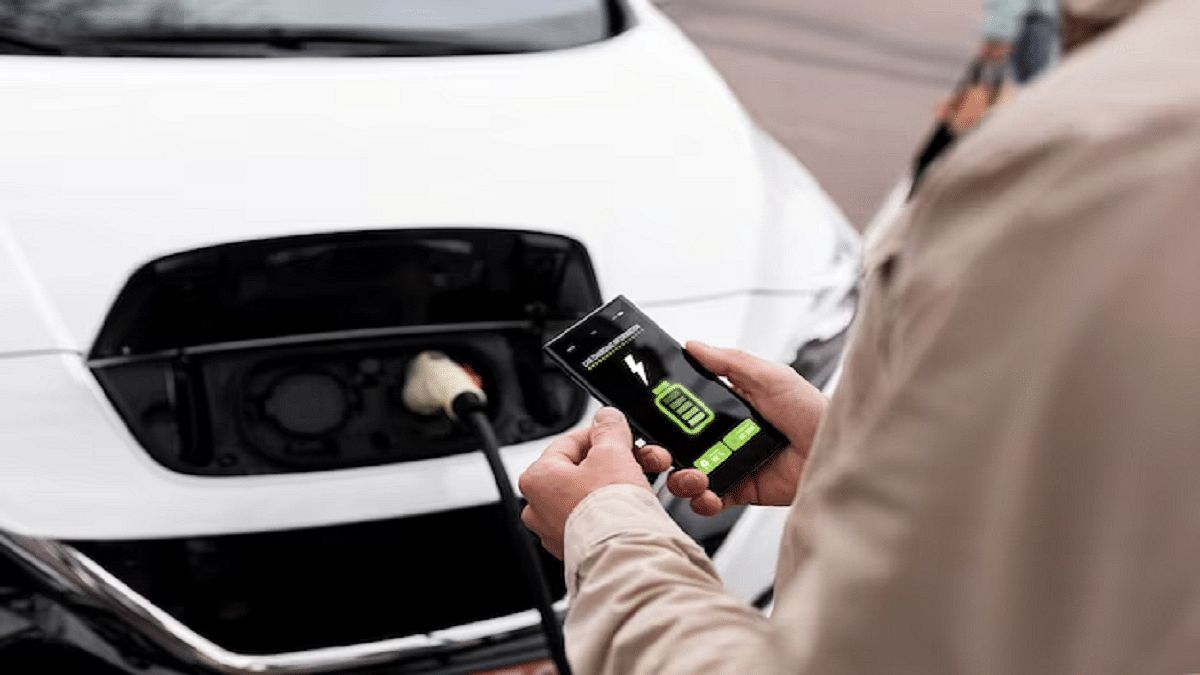Key Highlights
- Modern EVs boast longer ranges, thanks to high-energy-density batteries
- A surge in public charging stations and fast-charging tech are enhancing accessibility and convenience
- Level 2 chargers and standard outlets make home charging practical
The automotive industry is undergoing a revolutionary shift towards sustainable transportation, with electric vehicles leading the charge. Despite the environmental benefits and lower operating costs associated with EVs, some common concerns have slowed down their widespread adoption. Two major concerns that often dominate discussions about EVs are “range anxiety” and the state of charging infrastructure.
Here, we’ll delve into these concerns and explore how advancements in technology are addressing these issues, making electric vehicles a more feasible and attractive option for consumers. Also Read | Winter Care Tips For Electric Vehicles: How To Keep Your EV Healthy In Cold Weather
Understanding Range Anxiety
Range anxiety is a term used to describe the fear or concern that an electric vehicle’s battery will run out of charge before reaching its destination. This anxiety is rooted in the limited range of early electric vehicles and the perceived inconvenience of finding charging stations. Traditional gasoline vehicles have an extensive infrastructure of gas stations, providing drivers with a sense of security and convenience that is not immediately replicated in the electric vehicle landscape.
Advancements In Battery Technology
| Battery Advancements | Impact on EVs |
| High-energy-density batteries | Longer ranges on a single charge |
| Ongoing research and innovation | Continued improvement in range capabilities |
| Tesla’s innovation | Demonstrated potential with impressive EV ranges |
One of the most significant contributors to range anxiety is the limited range of early electric vehicle models. However, advancements in battery technology are steadily alleviating these concerns. The development of high-energy-density batteries allows modern EVs to achieve longer ranges on a single charge. Moreover, ongoing research and innovation in battery chemistry are composed to further extend the range of electric vehicles, eventually reaching levels that rival or surpass those of traditional internal combustion vehicles.
Tesla, a pioneer in the electric vehicle market, has demonstrated the potential of cutting-edge battery technology with its electric cars achieving impressive ranges. Other automakers are following suit, investing heavily in research and development to enhance the capabilities of their electric vehicles.
Expansion Of Charging Infrastructure
Addressing range anxiety also involves expanding the charging infrastructure to make charging more accessible and convenient. In recent years, there has been a significant increase in the number of public charging stations worldwide. Governments, businesses, and private entities are investing in building a robust charging network to support the growing fleet of electric vehicles.
| Expansion Of Charging Infrastructure | Impact on EVs |
| Increase in public charging stations | Improved accessibility and convenience |
| Fast-charging technologies (e.g., Tesla Supercharger) | Rapid charging for longer journeys |
| Smart charging solutions | Optimized charging based on various factors |
Fast-charging technologies have emerged as a game-changer, allowing EVs to charge more quickly than ever before. High-power chargers, such as those provided by Tesla’s Supercharger network, can add hundreds of miles of range in a matter of minutes. This not only reduces the time spent at charging stations but also contributes to alleviating range anxiety by making it more practical for drivers to top up their batteries during breaks or on longer journeys.
Also Read | Purchasing the Tata Nexon EV? Read about this omission first!
Smart Charging Solutions
The integration of smart charging solutions adds another layer of convenience for electric vehicle users. These systems use advanced algorithms to optimize charging based on factors such as electricity demand, grid capacity, and the user’s schedule. Smart charging helps alleviate concerns about overloading the grid during peak hours and ensures more efficient use of available charging infrastructure.
Home Charging Solutions
| Home Charging Solutions | Impact on EVs |
| Level 2 chargers | Convenient overnight charging at home |
| Standard household outlets | Basic charging option for daily commuting |
While public charging stations are crucial for longer journeys, the majority of EV charging occurs at home. Home charging solutions, such as Level 2 chargers and even more accessible standard household outlets, empower EV owners to conveniently charge their vehicles overnight. This reduces dependence on public charging infrastructure for daily commuting and contributes to a seamless electric vehicle ownership experience.
Giznext Verdict
The evolution of electric vehicles is transforming the automotive landscape, offering a sustainable and efficient alternative to traditional internal combustion engine vehicles. As the industry addresses common concerns like range anxiety and charging infrastructure, the adoption of electric vehicles is expected to accelerate. Advances in battery tech, charging infrastructure, fast charging, and smart solutions are making electric vehicles more practical and appealing to a wider audience. With ongoing innovation and investment, the automotive industry is on track to overcome these challenges, paving the way for a future where electric vehicles are the norm rather than the exception.
Also Read | Power Up Safely: Eight Essential Measures For Charging Your EV In Public

